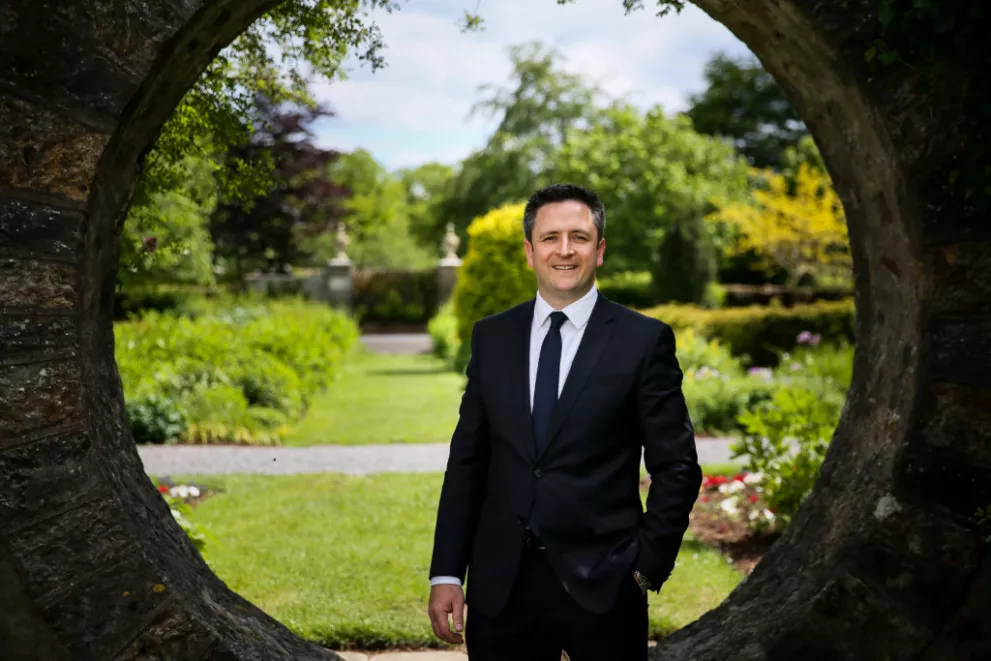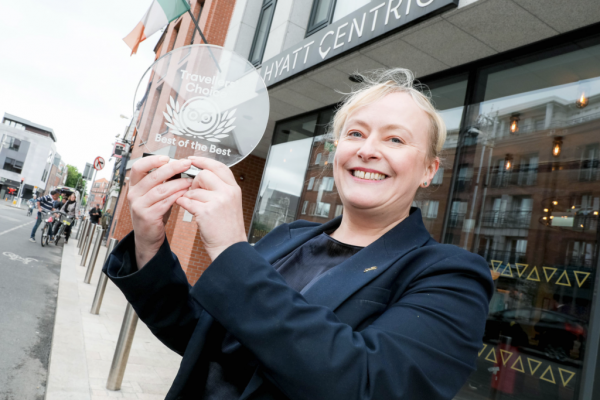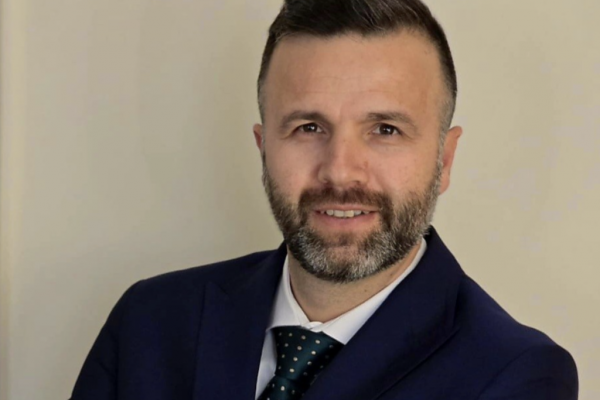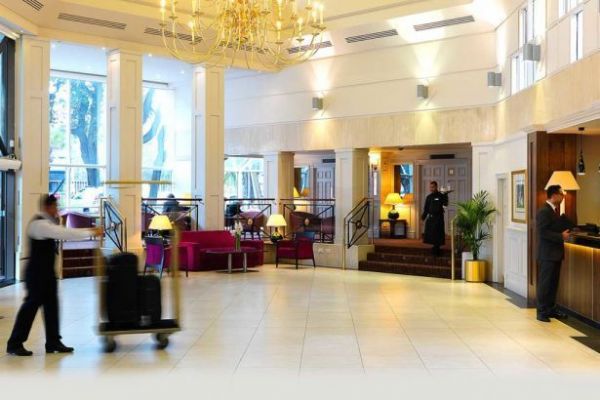In an industry where skilled roles are hard to fill, Mount Juliet Estate and South-East Technological University (SETU) have just confirmed an exciting partnership that will see students studying hospitality and culinary courses and securing work experience at Mount Juliet Estate, linking in with Marriott training. The work placement programme also allows students to avail of experience in a Marriott property and participate in a Marriott training programme internationally.
This article was originally published in the Summer 2023 issue of Hospitality Ireland Magazine, in July of 2023.
Mark Dunne, general manager of Mount Juliet Estate, and Professor Veronica Campbell, president of SETU, tell Hospitality Ireland about the collaboration and what it means for Irish students, and for the industry and its standards.
Tell us about the work placement training. How did it come about?
With the perpetual demand for hospitality professionals, the whole concept of work placement training came about with the objective of training our future generations of professionals right from the grassroots in the procedures and systems of the industry.
How is it organised?
Invitations are sent out to the target hospitality educational institutions on a yearly/quarterly/monthly basis, requesting them to select batches of students or to-be graduates and offer them a tour of Mount Juliet Estate, with a detailed introduction to each department and process of the hotel.
Who participates?
This form of training is offered to recent hospitality graduates, and even students who are interested in applying the theoretical knowledge they have acquired in a practical, hands-on environment while training under hospitality experts.
What is the day-to-day structure?
Running over an initial introductory period of two to three days, the trainees are directed to their manager’s day-to-day schedule of allotted department introductions allocated to each group. The trainees are encouraged to interact with the head of department or senior manager, putting forth any queries or asking for any explanations they may need.

What is the end goal of the scheme?
To put it briefly, the end goal is to offer these aspiring individuals an opportunity to gain first-hand industry knowledge, develop essential industry skills, and definitely improve their chances of employability in the industry. This scheme offers a brilliant platform to these individuals to build their professional networks while enhancing their resumes and guiding them on discovering their real work passion.
Why is it important to organise this?
Work placement training is a form of training that has grown to be essentially vital across industries. They say that no form of training comes close to comparison when it comes to actual hands-on, on-the-job training. Working alongside seasoned experts of the industry offers an opportunity to gain immense practical knowledge and grooms these individuals to handle real-life work situations professionally. This system not only benefits us as a company, but benefits the entire hospitality industry, offering up steady batches of capable hospitality professionals.
What are the gaps in the industry that you aim to fill?
The hospitality industry is one of the main industries that provide work opportunities to a huge number of amateur and inexperienced individuals, who – despite having the potential to Stephanie Roche announced as new Mount Juliet Estate Women's Golf Ambassador achieve an expert status – are held back by their lack of industrial training. By acquiring this talent early on and charting a professional path with the right guidance, we aim to raise the overall work quality of hospitality professionals in our organisation and the industry as a whole.
At whom is this aimed?
Work placement training is essentially aimed at potential hospitality talent that would definitely contribute to sustain, and maybe even revolutionise, the industry someday. This form of training provides a platform for future generations of hospitality professionals to really discover their strengths and hone their skills.
What is the benefit to Marriott?
Our company is greatly benefitted by this form of training, as this system provides us with the opportunity of identifying, observing, acquiring and grooming the best talent available in the hospitality industry, which, in turn ensures that Marriott upholds its standard of impeccable service that it is synonymous with worldwide.

Stephanie Roche announced as new Mount Juliet Estate Women's Golf Ambassador
What are the current challenges, in terms of staff and skills within the industry?
A high rate of attrition has always been a bane of the hospitality industry – mainly born out of the dissatisfaction of newer generations of employees who envision a meteoric growth in their careers, but who, unfortunately, do not have the required skills and experience, most of the time, to even be potentially offered the same in such a short period of time. With the right level of dedication and a pint-sized portion of extra commitment, they could develop the skills to demand the remuneration and recognition they deserve.
How do you see this developing over the coming years?
Work placement training is a system set up to gradually improve the quality of hospitality professionals that enter the industry, year on year. We could eventually look to set up even more development programmes – possibly with a more detailed focus on specific roles within departments. With the ever-increasing adoption of technology in hospitality services, an increase in property management and guest-experience software training would also be imminent.
Tell us a bit about your own background, Mark.
After a number of years working in a variety of roles within the Jurys Hotel Group properties, in 2007 I joined Doyle Hotels as deputy general manager of the Westbury Hotel. In a short space of time, I was promoted to acting general manager of this five-star Leading Hotel of the World property. As deputy general manager, I oversaw a €25 million renovation project, which included the transformation of the Wilde restaurant and the opening of the hotel’s Café Novo, while maintaining the five-star status of the hotel.
In 2012, I became the general manager of the Newpark Hotel, a member the Flynn Hotel Group, based in Kilkenny. During my tenure there, I held external support roles, namely as chairperson of the Kilkenny Tourism Hotel Cooperative and vice-chairperson of the south-east region of the Irish Hotels Federation.
The in-depth knowledge of Kilkenny tourism meant that I was perfectly placed to be appointed general manager of the historical Mount Juliet Estate. As general manager, I oversaw the (continuing) transformation from a four-star country house to a five-star resort, overseeing the completion of the renovation of the 93- bedroom Hunter’s Yard hotel, refurbishment of the Manor House, including the introduction of a new cinema and the 1757 bar, as well as seeing the resort successfully host the 2020 and 2021 Irish Open golf competition.
Read More: Hospitality Ireland Summer 2023: Read The Latest Issue Online!









